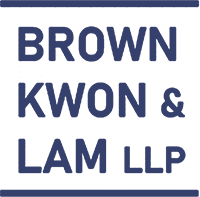Amidst the push for gig workers to unionize, lawmakers, labor unions, and tech companies are getting closer to reaching an agreement–but it comes at a cost. New York gig workers will still not be classified as employees, though they will have more workplace protections and benefits.
According to The City, State Sen. Diane Savino, the New York State American Federation of Labor and Congress of Industrial Organizations, the Service Employees International Union (SEIU) 32BJ, and several tech companies have been working to come to a consensus on how to handle gig workers. In essence, these workers are independent contractors ineligible, under federal law, for salary negotiations.
These organizations are working to produce a bill that will allow gig workers like Uber, DoorDash, etc. to vote to form unions. The unions would then engage in “sectoral bargaining.” This would mean that a union representative would be able to negotiate on behalf of an entire industry regardless of what companies those people work for
Other perks would include unemployment insurance and workers’ compensation benefits for gig workers as well as allowing delivery drivers to use restaurant bathrooms they deliver meals from.
While this would be a great stride in workers’ rights for these employees, there are potential complications.
The first major pitfall of the proposed bill is that gig workers will still not have an employee designation under the law. This means it would remain up to the state to impose any collective bargaining agreements. In addition, the proposal would preempt local governments from imposing some forms of regulations on the apps.
While many are seeing this push as a good thing, other lawmakers are seeing many red flags.
In mid-May, lawmakers passed the PRO Act, Protecting the Right to Organize Act, which would protect and empower workers to exercise their freedom to organize a bargain. With a new bill up for grabs, some lawmakers think that new laws will undermine the work of the PRO Act and disproportionately impact immigrant workers of color.
Employment law and those involved with the gig labor movement explain that if a bill is passed that does not reclassify laborers as full company employees with benefits and protections, the result will actually be more detrimental.
Now, New York employees, gig workers, and lawmakers alike must keep an eye out on legislative changes and how they can impact current strides being made towards a more even playing field for gig workers.
Have questions about your rights as a gig worker or independent contractor? Call Brown Kwon & Lam.
Gig workers are a large portion of the economy and people that our nation have come to rely on. If you have questions about the current proposed laws or your rights as a gig worker or independent contractor, call the New York employee rights attorneys of Brown Kwon & Lam today.

